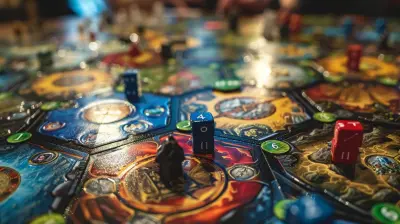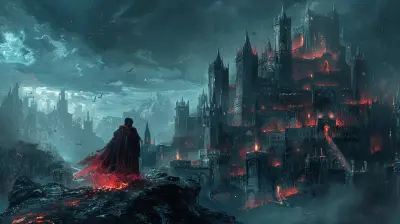Why Lore Matters in Building Expansion Worlds
5 August 2025
Let’s get real for a second — games are more than just flashy graphics, cool weapons, and high-octane gameplay. Sure, blowing stuff up or racking up wins can be fun, but what really makes a game stick with you long after you’ve logged off? It’s the world — and more precisely, the lore behind that world.
In a time where game expansions are getting bigger, bolder, and more immersive, building compelling worlds isn’t just an option anymore — it’s a necessity. And that’s where lore sneaks in as the MVP of storytelling. It’s not just some background fluff; it’s the glue that holds everything together.
So let’s break it down — why does lore matter SO much in building expansion worlds? Grab your health potions and let’s dive in.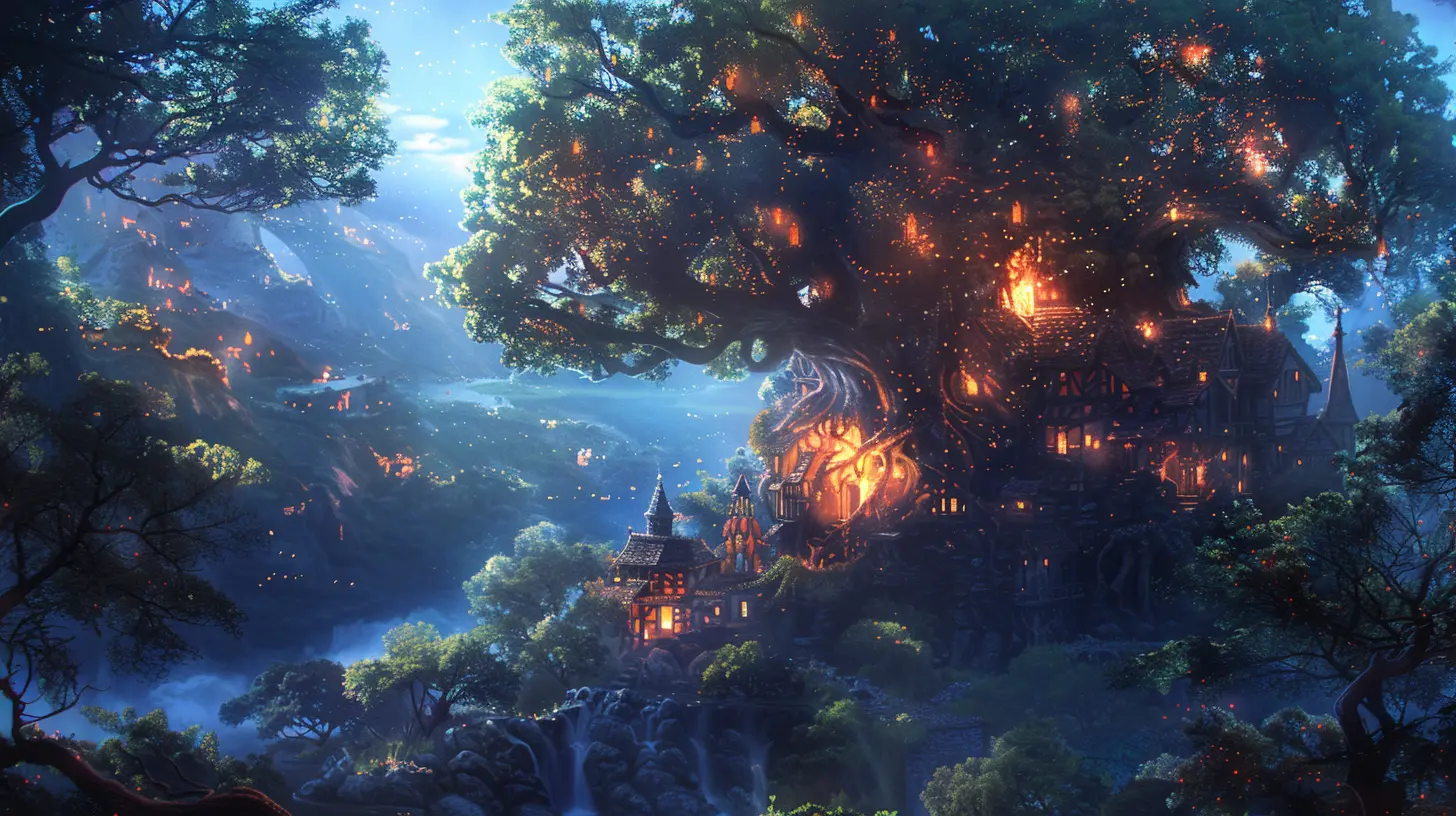
What Is Lore, Anyway?
Before we go full nerd mode, let's make sure we’re on the same page.Lore is the backstory, the history, the myths, and the fabric of a game's universe. It’s what explains why the world exists the way it does, who the characters are, why two factions hate each other, and what ancient evil is about to wake up and wreck everything.
In short? Lore brings life and meaning to every sword swing and every plot twist.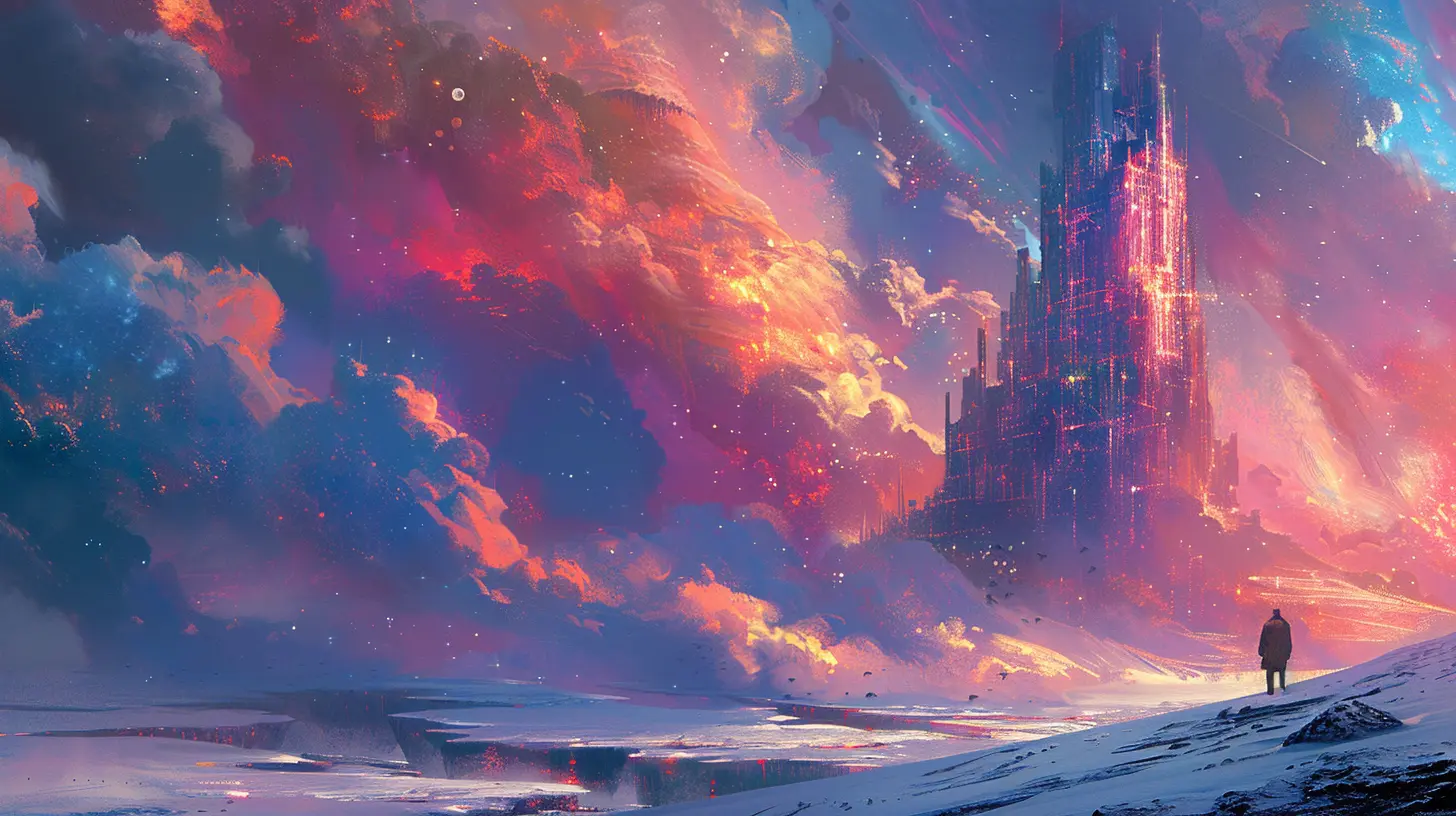
Lore Is the Foundation of Immersion
Ever walked into a game's new expansion and instantly felt like you were home, even if things were unfamiliar? That’s lore doing its magic.When developers build on established lore in an expansion, it creates a sense of continuity. You’re not just venturing into some random snow-drenched mountain because the devs wanted cool visuals. You’re going there because ancient texts promised it held the key to defeating some long-forgotten darkness.
That level of depth pulls players in. It creates emotional investment. You care more when your actions feel like they’re part of a larger, ongoing story.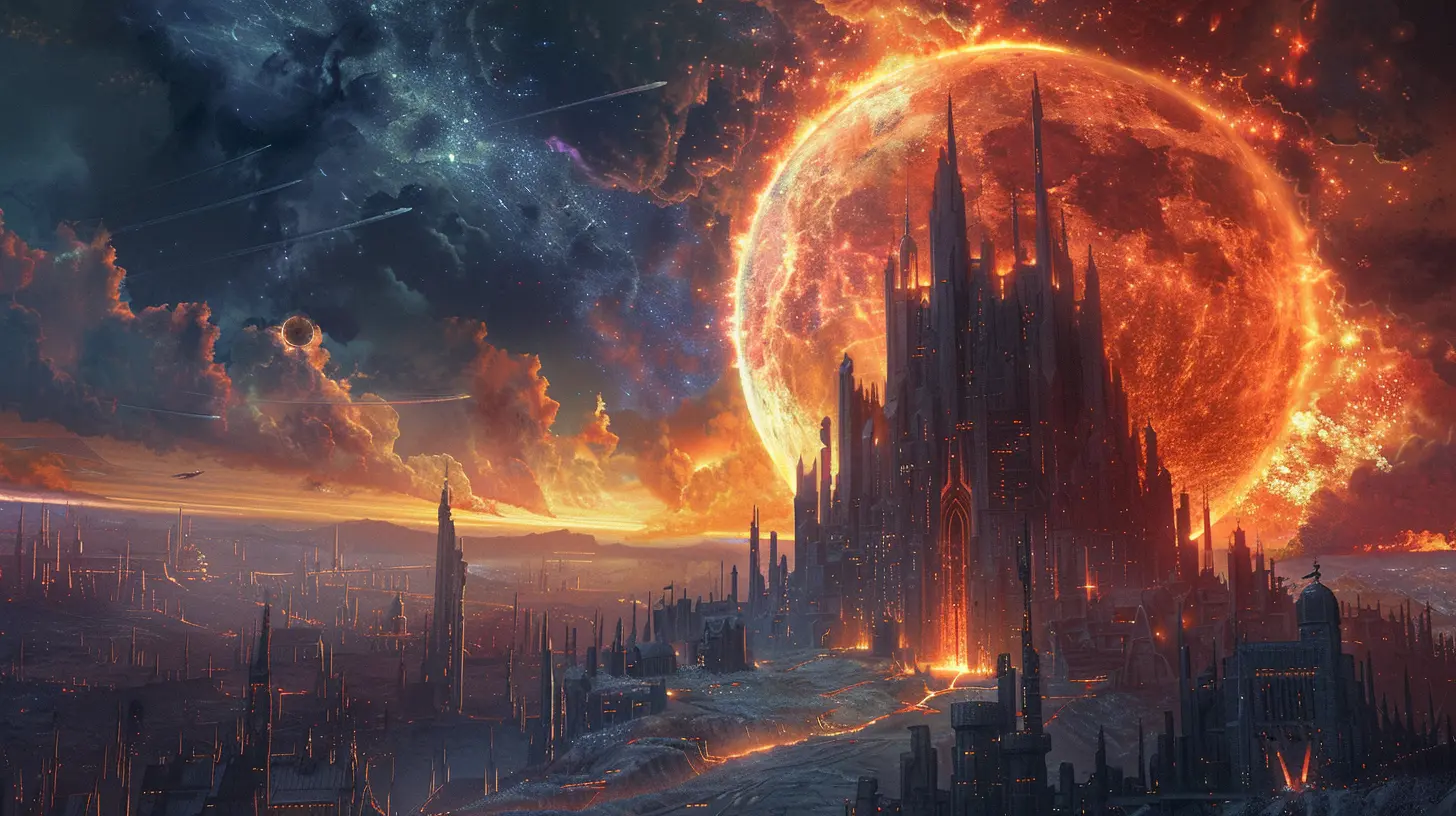
World-Building That Feels Real
Good world-building doesn’t just slap a map in front of you and say, “Go nuts.”It gives you cultures, politics, histories, conflicts, and mysteries to uncover. Lore ensures that every town, dungeon, or alien planet in an expansion feels like it existed long before you showed up — and will keep existing after you leave.
Imagine stumbling into an abandoned temple during your mission. It's not just an obstacle course. Thanks to lore, you know it was once a sacred site of an extinct civilization. That knowledge gives the encounter weight and makes exploration feel like archaeology, not just level-grinding.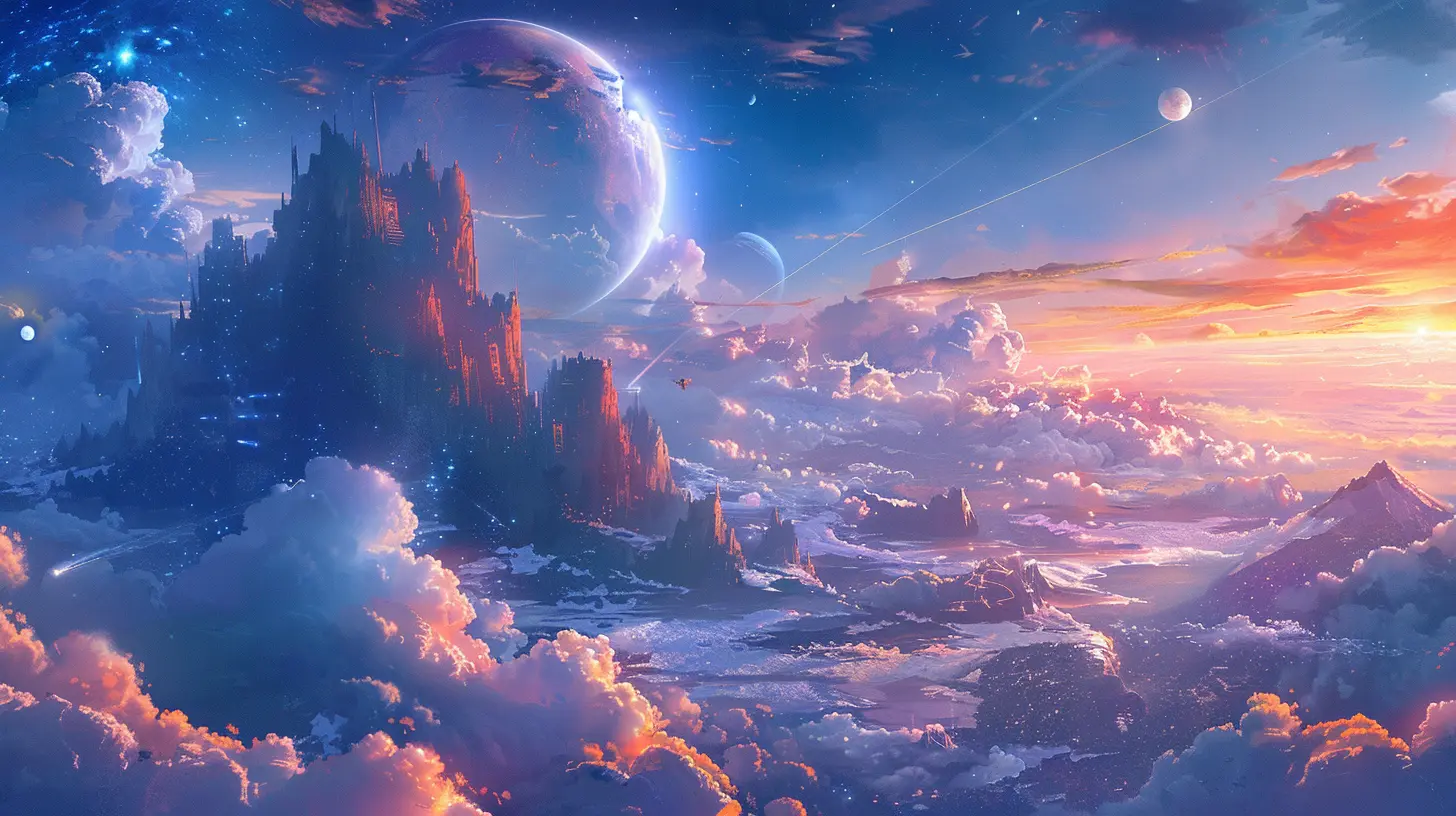
Lore Adds Depth to Characters and Factions
You know those NPCs that feel flat — like they exist solely to give you a quest and disappear afterward?Yeah. That’s what happens when lore gets ignored.
When expansions are driven by lore, characters feel richer. They’ve got motivations rooted in history. Maybe that grizzled ranger hates mages because his village was destroyed during the Mage Wars of 800 B.E. (Before Everything Went to Hell).
Or take factions: instead of red-vs-blue conflict, you get nuanced political tension. Lore lets you pick a side not because of gear bonuses — but because you believe in what that faction represents.
Storytelling That Evolves in Meaningful Ways
Let’s be honest — not all expansions hit the mark. Some feel like disconnected side quests with shiny new loot.But when stories tie into the world’s lore, they matter. Expansions can peel back layers of the universe, reveal hidden truths, resolve long-standing mysteries, or even flip everything you thought you knew on its head.
Remember how some expansions retcon entire plot lines? That can backfire unless it fits the lore. Done right, it deepens the experience and rewards players who’ve been paying attention since day one.
Keeps Long-Time Players Engaged
Think about it. Why do some players stick with a game for years?Sure, new weapons and challenges help, but what really keeps ‘em hooked is the evolving story and lore. Each new expansion becomes a chapter in a saga they’ve been a part of. They want to see how the war ends or what fate befalls their favorite character.
Lore gives long-term players ownership. They remember key events. They’ve seen factions rise and fall. They’ve walked through the ashes of kingdoms they helped burn down or save.
You can’t get that kind of engagement from just pretty visuals or faster mounts.
Creates Community Discussion and Theories
Let’s not overlook something juicy: games with great lore spark endless community chatter.Hours of YouTube videos. Reddit forums exploding with theories. Fan-made timelines and podcasts just trying to make sense of it all.
Why? Because the lore is that deep and open to interpretation.
When expansions expand the lore instead of just the map size, they feed the fire. Players speculate wildly about the next plot twist. That kind of fan engagement basically markets the game for free — and keeps it alive between content drops.
Lore Builds Emotional Payoffs
Ever reached the climax of an expansion and felt your heart race — not just over the mechanics but because you knew what it meant?Lore makes that possible.
It builds emotional stakes. Killing the big bad feels impactful because you wasn’t just fighting some oversized boss… you were facing the villain who murdered your mentor back in Expansion One. Full circle moment.
Without lore, it’s just another boss fight. With lore? It’s a freaking finale.
Helps Developers Stay Consistent
Let’s not ignore how lore helps behind the scenes, too.For devs, consistent lore is like a rulebook. It tells them what can and cannot happen. That helps avoid weird plot holes or expansions that feel like they belong to a different game entirely.
It keeps the tone, the themes, and the storytelling aligned. So even when you’re jumping from a desert wasteland to a neon-lit cybercity, your brain knows it’s still the same universe — because the lore makes it make sense.
Lore Makes the Player Feel Like a Part of Something Bigger
This is huge.When you’re immersed in a world with deep lore, you stop feeling like just a player. You start feeling like a citizen of that world.
Expansions give you more ground to cover, more secrets to find, more legends to uncover. It’s not about just “beating the expansion.” It’s about participating in a saga that stretches far beyond your character’s lifespan.
That's the kind of stuff that turns casual players into lifelong fans.
Examples Done Right
Let’s highlight some heavy hitters for context:- World of Warcraft: Their expansions build directly off decades of lore. Players stormed the gates of the Lich King’s fortress years after hearing about him. Every major update ties into established characters and conflicts.
- Elder Scrolls Online: Every new zone or chapter connects back to Tamriel’s deep history. You’re not just roaming around — you’re uncovering deep political and mystical lore that dates back centuries.
- Destiny 2: Bungie has turned lore into an art form. The gameworld feels alive because the expansions revolve around ancient wars, lost civilizations, and evolving cosmic threats. You’re literally writing new pages of history every expansion.
When Lore is Ignored… Cue the Backlash
And yeah — when developers mess with or ignore lore, players notice. Hard.You’ll see forums explode. Review scores dip. People feeling like the expansion “doesn’t fit.” That’s because expectations have already been built with every previous update.
Lore is a contract between players and developers. Break that trust, and you’re going to have a bad time.
Final Thoughts: Lore Isn’t Optional — It’s Essential
If you're building an expansion world, you can't treat lore like a side quest. It's the main storyline, the soul of your universe. It tells your players that this world means something — and that they mean something in it.When done right, lore doesn’t just enhance expansions — it transforms them from content drops into unforgettable experiences.
So whether you’re a developer crafting the next big chapter, or a gamer eagerly awaiting a new world to explore, remember this simple truth:
Lore. Is. Everything.
all images in this post were generated using AI tools
Category:
Game ExpansionsAuthor:

Greyson McVeigh
Discussion
rate this article
1 comments
Chantal Yates
Great insights! Lore truly enriches game worlds and deepens player engagement. Thank you!
September 8, 2025 at 2:42 AM

Greyson McVeigh
Thank you for your kind words! I'm glad you found the insights valuable. Lore truly enhances the gaming experience!
